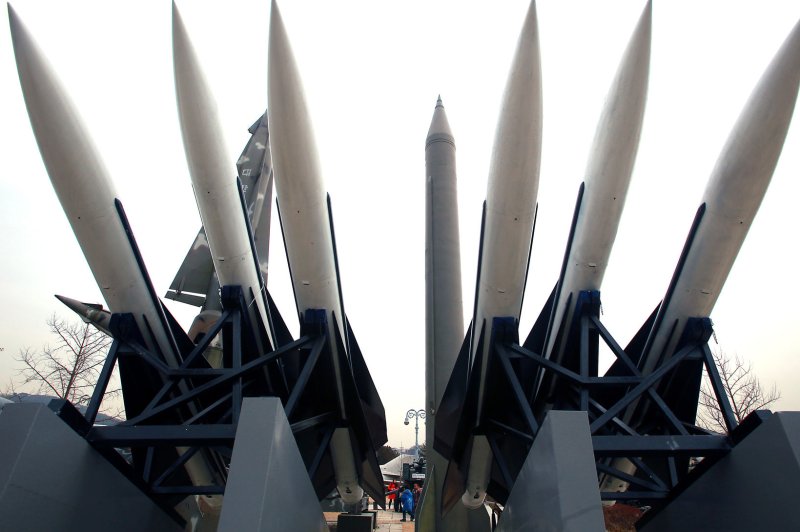North Korea has reaffirmed its plans to carry out nuclear tests and conduct missile launches, drawing international condemnation and sanctions, resulting in international isolation and a fragile economy. (UPI/Stephen Shaver) |
License Photo
SEOUL, Sept. 3 (UPI) -- South Korea's Foreign Minister Yun Byung-se said Wednesday that Seoul is seeking to strengthen relations with the U.S., China and Japan in response to North Korea's nuclear ambitions.
Together, he hopes they can "pursue a strategy in prodding the North into becoming a responsible member of the international community."
North Korea is currently on a path toward increasing isolation, he remarked, as the international community continues to condemn the North's nuclear tests and missile launches.
"North Korea should be aware that the more it tries to own nuclear weapons, the more costs outweigh benefits," said Yun.
And the North appears to recognize its "desperate" situation, according to Yun, who points to a rare trip to Europe planned for senior North Korean diplomat Kang Sok-Ju. "North Korea's move indicates that Pyongyang is facing desperate situations due to international isolation and economic difficulty."
On Monday, North Korea assembled three American hostages for a brief press interview in a move that was perceived as pressuring Washington for dialogue. "Their negotiating ploy with the U.S. is to try to get us to agree to nuclear arms control, to sort of accept them as a nuclear weapons state, which we (the United States) can't do," said Michael Green of the Center for Strategic and International Studies.
Kenneth Bae, Jeffrey Fowle and Matthew Miller were detained by North Korea in separate incidents but brought together at an undisclosed location in Pyongyang for the interviews.
"My guess is the fact that all three of them were put on tape for an American audience on Labor Day as a signal from the North Koreans that they're looking for some sort of package deal to try to get them all out. Whether they're trying to connect this to the long-style nuclear negotiations is anybody's guess," said Victor Cha, adviser to President George W. Bush on North Korea.















